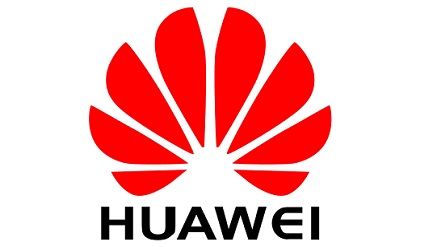Telecom
Huawei, Lenovo Top 83% MEA Smartphone Market Growth in 2014

Smartphone shipments to the Middle East and Africa saw unprecedented year-on-year growth of 83% in 2014, as Huawei and Lenovo made significant improvements during the time, according to – Q4 2014 Handsets Tracker released by International Data Corporation (IDC).
Spurred by the increased availability of cheaper models and dual-SIM devices, the global advisory and consulting services firm announced that smartphones accounted for 41.9% of all mobile handset shipments to the region in 2014, up from 27% in 2013, with the overall handset market expanding 19.6% in volume year on year.
Feature phones have been hit hard by the increased availability of more affordable smartphones, with shipments down 4.5% year on year in 2014.
Indeed, smartphones priced under $100 captured 20% share of the MEA smartphone market in 2014, up from just 5% in 2013.
Additionally, market share of smartphones in the $100–200 price bracket increased eight percentage points in just one quarter, from 25% in Q3 2014 to 33% in Q4 2014.
Meanwhile, smartphones priced in the higher-end $250–500 bracket have seen their share of the overall market fall from 23% in Q3 2013 to 18% in Q4 2014
“Many new vendors have been eager to get into the region’s burgeoning smartphone space, with a number of them launching phones in this growing price band,” says Nabila Popal, IDC’s research manager for handsets and display solutions in the Middle East and Africa. “This strategy of targeting the mid and low end of the market has contributed significantly to the success of vendors like Huawei and Lenovo.”
The growing popularity of dual-SIM smartphones is also helping shape the market, with shipments of such devices increasing 34% year on year in Q4 2014. “Vendors such as Samsung and HTC launched variants of their flagship S5 and HTC One M8 models with dual-SIM capabilities,” said Isaac T. Ngatia, a senior research analyst at IDC Middle East, Africa, and Turkey. “Demand for such devices stems from the fact that a growing band of consumers want to enjoy cheap cross-network calls and offers from multiple telcos and therefore retain more than one SIM card for their personal use.”
The majority of the growth in the smartphone category was witnessed in countries that have larger populations but previously had low penetration rates. For example, smartphone shipments to Nigeria and Kenya increased 135% and 112%, respectively, year on year in 2014, while Pakistan saw growth of 105% over the same period. “The increased appetite for smartphones in Pakistan is being driven by a combination of the deployment of 3G networks across the country and the wider availability of more affordable devices,” said Popal.
Meanwhile, the more mature GCC smartphone market expanded 31.8% year on year in 2014, contributing to the region’s penetration rate reaching an impressive 72.6%.
The overall handset market’s vendor dynamics also changed by the end of 2014. Although Samsung maintained its number-one position in MEA, its smartphone share fell from 51.5% in 2013 to 43.8% for 2014.
Huawei and Apple followed in second and third place with shares of 8.9% and 7.8%, respectively. The same trend can be seen quarter on quarter, with Samsung’s share dropping 7.8 points from Q3 to Q4 2014, while Huawei and Apple saw their shares increase 5.1 points and 2.7 points, respectively, over the same period.
“Apple’s growth is primarily due to the incredible success of its iPhone 6 and iPhone 6 Plus models, which finally placed the vendor in the large screen size segment that had previously been dominated by Samsung,” said Popal. “Many users that had made the switch from Apple to Samsung specifically for the larger screen sizes have now started to switch back. Meanwhile, Huawei has experienced a wave of growth in the mid to low-end segment, with its Honor 3 and Ascend Y series enjoying great success. The vendor has struck the right balance between quality and price, particularly in some of the region’s more emerging markets where it is even killing the local competition.”
Like in other global markets, the MEA market witnessed a massive 58% increase in the shipment of iOS devices in Q4 2014 compared to Q3 2014.
Android shipments increased by only 3.8% over the same period, while Blackberry OS continued its declining trend after a temporary increase in Q3 2014.
Telecom
MTN @ Swish Fusion Summit, Showcases 5G Rollout Strategy

MTN Nigeria Communications Plc has joined other professionals across media, technology, and business gathered in Lagos for the Swish Fusion Tech and Media Summit.

Themed ‘Africa: Big Wins & New Breaks’, the summit drew thousands of attendees and featured more than 40 speakers exploring the intersection of innovation, regulation, and economic growth across the continent.
Among the sessions, MTN Nigeria presented a detailed look at the company’s ongoing 5G deployment efforts and its role in shaping enterprise infrastructure.
Njideka Jack, senior manager for Partnerships in MTN’s Enterprise Business Division, shared details of the investments, reiterating the company’s commitment to delivering high-quality 5G-powered services.
The company’s 5G rollout timeline began in 2022 with license acquisition from the Nigerian Communications Commission. In 2023, MTN moved into pilot testing and infrastructure investment.
By 2024, coverage had expanded to key cities and business hubs.
The company now plans to extend access to more underserved areas throughout 2025 while deepening collaboration with OEMs and regulators.
Beyond the rollout itself, Jack also spoke on the potential of private 5G networks for Nigerian enterprises.
With the ability to offer secure, high-speed, low-latency connectivity, these networks are increasingly being adopted in manufacturing, healthcare, education, and logistics sectors.
The summit’s broader agenda reflected a similar sense of urgency around Africa’s digital future.
Panels and breakout sessions tackled topics ranging from mobile-first product design and regulatory frameworks to the rise of AI in content creation and the realities of funding early-stage tech ventures on the continent.
Speakers from companies like Jumia, Stears and local startups provided perspectives on both the barriers and breakthroughs in building scalable African solutions.
The sessions also sparked conversations about how African businesses are adapting to consumer behaviour shifts and infrastructure limitations.
Telecom
PAT Taps Osi as CEO

Pan African Towers (PAT), a Nigerian infrastructure provider serving 9mobile and Spectranet, has appointed Echezona Osi as chief executive officer.

Echezona Osi
Adefolarin Ogunsanya, company’s, board chairman, explained in a statement that Osi would succeed Oladipo Badru, whose tenure lasted nine months in acting CEO position. Osi has more than 28 years of experience in the telecommunications sector across various regions of Africa.
Prior to his appointment as CEO, he had served as the head of network deployment at Airtel Nigeria, operations director and chief technical information officer at MIC Tanzania, chief technology officer roles at IPT PowerTech Nigeria, Rhino Niger Networks and Biswal Nigeria.
He obtained a degree in electrical/ electronic engineering from the University of Benin and a postgraduate diploma in data science and business analytics from the University of Texas.
Telecom
NCC Introduces N10m Licence Fee for Bulk SMS Service

Companies sending bulk international text messages, also known as Application-to-Person (A2P) messages, will now have apply for a licence that costs N10 million.

This is part of new rules introduced by the Nigerian Communications Commission (NCC) aimed at cleaning up the system, fighting fraud, blocking spam messages and stopping money from leaving the country unchecked.
These A2P messages are the kind customers get from banks, online stores, hospitals and political campaigns, automated texts sent from apps to their phones.
According to the commission, the bulk international text message system has been poorly regulated, allowing misuse and invasion of privacy.
“The International SMS Service Ecosystem in Nigeria has not been fully brought under regulatory control. It has been observed that the excessive use of the Short Message Service has led to fraud, spam and illegal activities,” the NCC said.
The regulator warned that without action, the problem would worsen as more people use mobile phones and digital services.
To solve this, the NCC is creating a central platform, or gateway, through which all international bulk text messages must pass through.
The agency said this would help to monitor messages in real time, ensure proper fees are paid, and make sure the money stays in Nigeria where it can contribute to the economy.
As part of the incoming change, service providers must follow strict rules, including strong data protection, spam filters, and message encryption.
Also, they must also work with local mobile networks and make sure all messages come from a verified sender
The NCC warned that any message without a proper sender ID will be blocked and not delivered to users.
To protect users from unwanted texts, the new rules say companies must get clear permission before sending any promotional content.
The rule also says people must also be able to choose whether they want to receive such messages or not.
Companies are now required to keep records of all messages for at least six months and must clearly state all charges involved.
The NCC said fees for help requests, cancellations, or service info must be transparent and not include hidden charges.
The commission will issue licences to several providers to encourage healthy competition but may limit new licences if needed.
Only companies that show they can stop fraud and safely deliver messages will be allowed to operate. They must also regularly report their message traffic and finances to the NCC.
It warned that any company that breaks the rules risks getting fined, suspended, or having its licence revoked.
Offences like charging illegal tariffs, ignoring security rules, or avoiding taxes will be punished, the NCC said.
The commission added that the new rules follow the Nigerian Data Protection Act 2023 and support the federal government’s goal of strengthening cybersecurity and controlling Nigeria’s digital space.
The framework will also be reviewed from time to time to keep up with new technology and market trends.

 Broadcasting2 days ago
Broadcasting2 days agoNigeria Week Ahead: Inflation, Oil and Naira in focus

 News2 days ago
News2 days agoEFCC: Accusations Against Our Chairman Are Baseless and Misleading

 Telecom1 day ago
Telecom1 day agoMTN Nigeria Targets $1Bn Cloud Market with Largest Modular Data Centre

 Telecom1 day ago
Telecom1 day agoNCC Introduces N10m Licence Fee for Bulk SMS Service

 E-Business1 day ago
E-Business1 day agoFirm Highlights Top Risks of Quantum Computing

 General News1 day ago
General News1 day agoWoodhall Capital and Partners Launch ₦1.5Bn Fund

 General News1 day ago
General News1 day agoBurna Boy Distances Himself from Meme Coin, Labels Crypto as Fraud

 General News1 day ago
General News1 day agoAM Best Reaffirms Stable Outlook for Cyber Insurance Market















